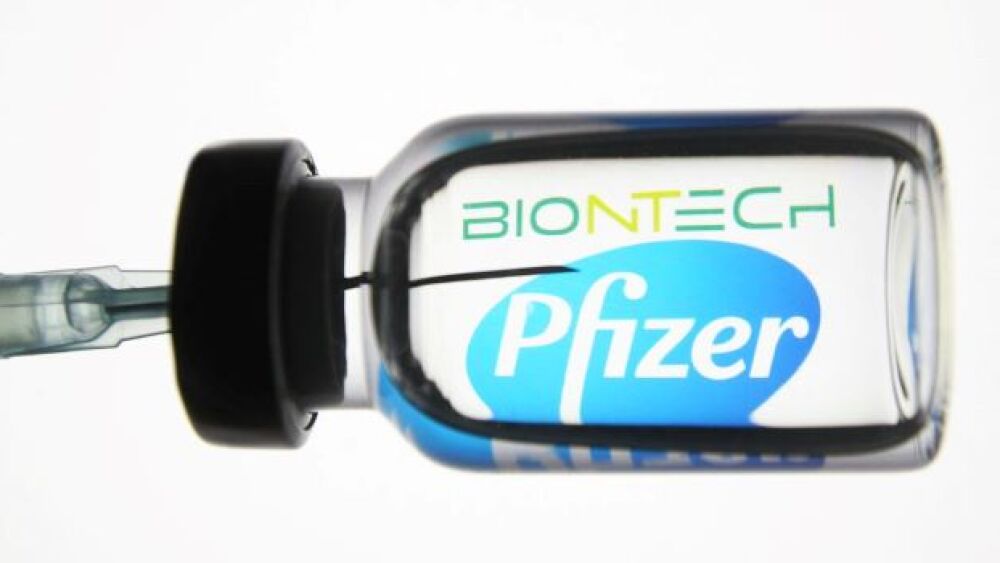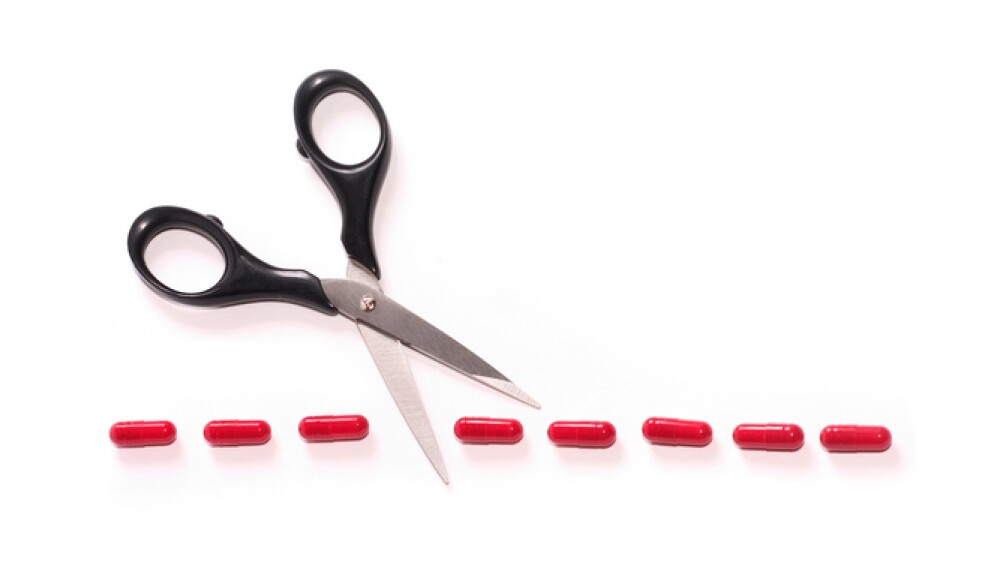Here’s a look at Pfizer-BioNTech, Novavax and the COVID-19 vaccine’s sales, approval in children, additional trials, potential of booster shots, and more.
STR/NurPhoto via Getty Images
Pfizer-BioNTech and the COVID-19 vaccine are always in the news, both in terms of additional tests, approvals in children, and the potential of booster shots. Novavax has also expanded its trials. Here’s a look.
Pfizer Vaccine Revenue Projected to Be $26 Billion for 2021
During yesterday’s first-quarter annual report, Pfizer noted that of the $14.6 billion it raked in this quarter, $3.5 billion of it came from the COVID-19 vaccine it developed in partnership with Germany’s BioNTech. It is projected that the vaccine revenues will hit $26 billion this year, which would make it the biggest-selling pharma product in the world.
The company is urging India to expedite its authorization of the vaccine while the country is undergoing a massive surge of COVID-19 cases that are overwhelming the country’s healthcare system and causing more than 3,000 deaths per day.
“India wanted to do additional studies,” Albert Bourla, Pfizer’s chief executive officer said, but the company “was not ready to allocate resources” that were already invested in other uses for the vaccine, such as in children, pregnant women, and booster shots. “We are hopeful they will change this policy about conducting local trials.”
But Pfizer has pledged $70 million worth of medicines, including an anticoagulant, to India. Some physicians, politicians, and advocates are pushing Pfizer to release the patent protection on the vaccine so India can produce the vaccines itself.
The company also expects authorization for the vaccine for adolescents ages 12 and older perhaps this week or next. It is also currently running a seamless Phase I/II/III trial in children ages six months to 11 years of age. It has broken it into three age groups: five to 11 years, two to five years, and six months to two years. It expects to seek Emergency Use Authorization (EUA) for children 2 to 11 in September.
Bourla said at the quarterly conference call, “We expect to have definitive readouts and submit for an EUA for two cohorts, including children age 2-5 years of age and 5-11 years of age, in September.” The readout for children six months to two years is expected in the fourth quarter.
Novavax COVID-19 Vaccine Trial Now Includes 12-17-Year-Olds
Novavax announced this week that it has expanded its Phase III trial of its COVID-19 vaccine to include children between the ages of 12 and 17. The vaccine has yet to be authorized or submitted for authorization in the U.S. It is undergoing a rolling review in Europe. It is being tested now on about 3,000 children at 75 locations in the U.S. It is a two-shot vaccine taken 21 days apart.
In January of this year, the company reported that its vaccine demonstrated 89.3% efficacy in a UK-based trial. And in March, the final analysis showed 96.4% efficacy against COVID-19, with 86.3% efficacy against the UK variant and 48.6% efficacy against the South African variant. But it was 100% efficacious against severe disease, including hospitalization and death.
The company has suggested that the U.S. Food and Drug Administration (FDA) might grant Emergency Use Authorization (EUA) sometime this month if they are allowed to take into consideration the UK data. If authorized, they have a contract to supply the U.S. with 110 million doses, which could be completed around June or July.
BioNTech Execs Think COVID-19 Pandemic Will Continue for At least Another Year
During The Wall Street Journal’s CEO Council Summit held yesterday, BioNTech’s chief executive officer Ugur Sahin said he thought the pandemic would continue to spread into 2022 unless countries work to ramp up vaccine distribution. Specifically, he cited India, which was the second country to record 20 million infections.
“We need to ensure really high vaccination rates worldwide,” Sahin stated. “Otherwise, no one will be safe.” He pointed out that the entire world needs to achieve herd immunity before the pandemic can end. “By mid-2022, even regions with high density populations like India will reach a high rate of vaccination and herd immunity.”
The company’s chief medical officer and co-founder, Ozlem Tureci, noted that mixing doses from different vaccines might be necessary to reach herd immunity more quickly. The U.S. Centers for Disease Control and Prevention (CDC) has stated that this should only be done with the Pfizer-BioNTech and Moderna vaccines in “exceptional situations.”
“The more vaccines we have available, the better. … We can obviously mix and match them in principle,” Tureci said. “At the end of the day, we want to achieve herd immunity. We want to achieve as many vaccinated people as possible.”
The Question of Booster Shots
Many vaccine manufacturers have suggested that a third booster shot of the vaccines, or possibly an annual shot, will be necessary. Pfizer-BioNTech, for example, has said they think a COVID-19 booster shot will be needed within 12 months from the initial jab.
Other experts, however, don’t think a third dose will be needed that soon. Data from the Pfizer-BioNTech vaccine at six months has suggested robust immunogenicity levels even against more contagious variants.
Pfizer-BioNTech is evaluating two booster strategies. The first is repeated vaccination with the original vaccine, Comirnaty. The second is with a new version that is specific for the South African variant, B.1.351.
Vaccine experts believe a third dose of Comirnaty should be enough to protect against the original Wuhan wildtype variant and likely would be plenty against the South African variant. But they also agree that a booster focused on the variants might be a better long-term protection investment. It would offer a broader protection profile that might include other possible variants.
A recent report suggested that vaccine manufacturers such as Pfizer-BioNTech might start renegotiated vaccine prices that include booster shots as early as this fall.
The early six-month Phase III data of Comirnaty suggests the vaccine will offer at least 12 months durability after the initial two shots, according to Stephen Thomas, who headed the Phase III Comirnaty study, and is with the Infectious Disease Division, Upstate Medical University, Syracuse, New York. There was a slight drop at six months, but vaccines that trigger a durable response that lasts six months typically have more extended durability. He thinks it’s doubtful it would drop below 50% protection in the next six months.
Daniel Griffin, chief, Division of Infectious Disease, ProHealth Healthcare, New York, thinks that, even in the face of variants of concern, a booster will probably not be needed within 12 months of the initial vaccination.





